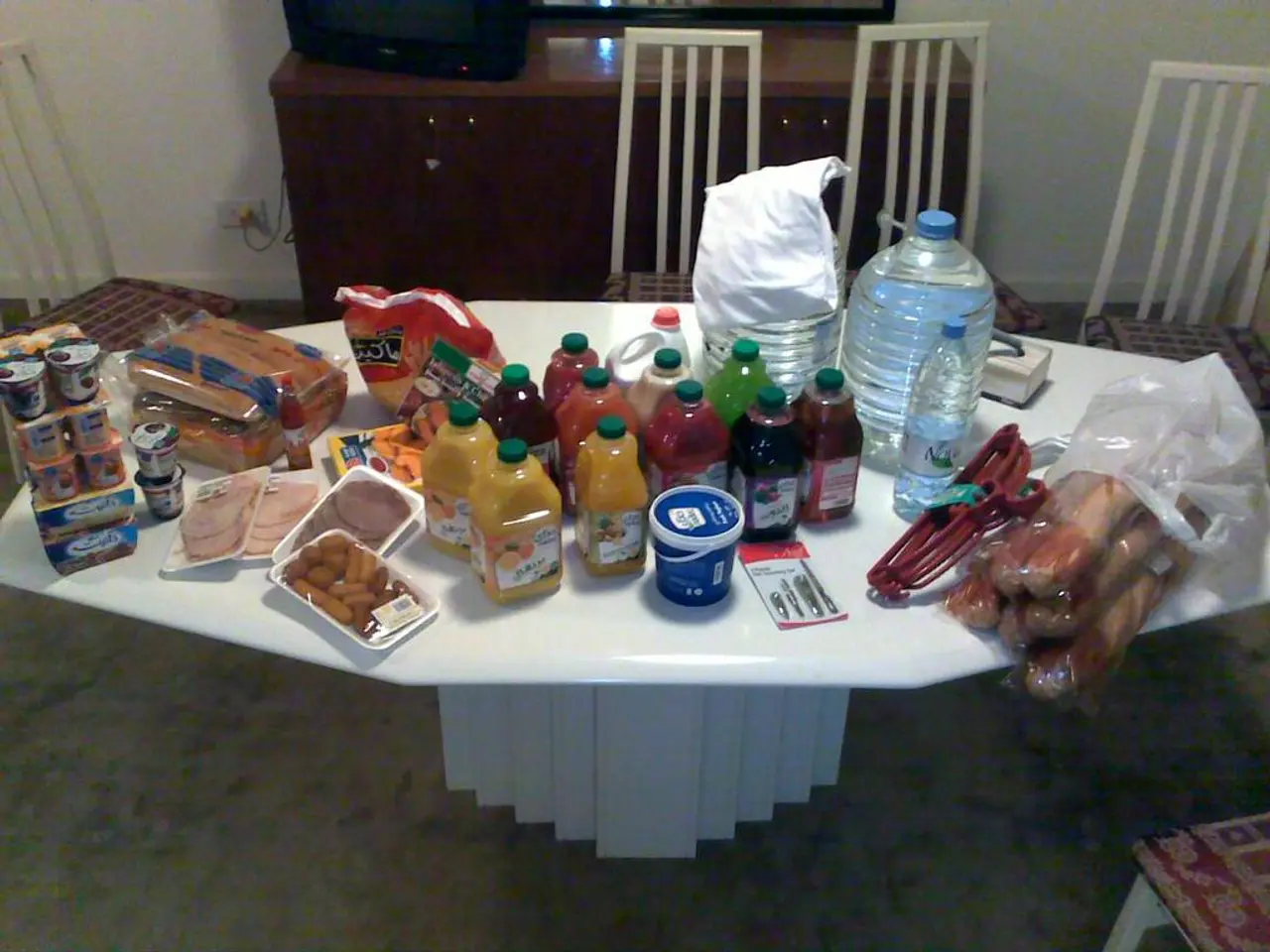Duration of Hangover Symptoms: A Look at Their Longevity
In the realm of alcohol consumption, hangovers are an all-too-familiar experience for many. But what exactly causes them, and how can we manage their symptoms? Let's delve into the world of hangovers and uncover some key insights.
The duration and intensity of hangover symptoms are influenced by several factors. The amount and type of alcohol consumed, hydration status, sleep quality, individual tolerance, metabolism, and overall health, including liver function, all play a role [1][2][4]. Drinks with more congeners (impurities), such as red wine and dark spirits, tend to produce worse hangovers. Dehydration—caused by alcohol’s diuretic effect—and poor sleep exacerbate symptoms. Other factors include inflammation from alcohol metabolism, toxin buildup (acetaldehyde), low blood sugar, and stomach irritation [1][2].
Common hangover symptoms range from mild headaches and fatigue to severe vomiting, muscle aches, and intense sensitivity to light and sound. These symptoms can last from a few hours up to 24 hours, sometimes longer for more severe cases or withdrawal symptoms [1][2].
Regarding remedies and strategies to reduce severity or speed recovery:
- Hydration: Drinking plenty of water or electrolyte fluids helps combat dehydration, a major factor in hangover severity [1][4].
- Rest and sleep: Adequate sleep improves recovery by addressing alcohol-induced sleep disruption, especially REM sleep reduction [1][4].
- Food intake: Eating balanced meals helps stabilize blood sugar and replenish nutrients [1].
- Over-the-counter pain relievers: Can alleviate headaches and muscle aches but should be used cautiously to avoid stomach irritation or liver damage [1].
- Intravenous therapy: In more severe cases, intravenous fluid therapy can rapidly rehydrate, replenish electrolytes, flush toxins, and deliver anti-nausea medication, providing quicker relief than oral remedies [4].
- Avoiding congeners: Choosing lighter-colored drinks with fewer congeners can help reduce hangover severity [1].
- Prevention: Drinking in moderation, pacing consumption, and not drinking on an empty stomach can lower the risk of intense hangovers [5].
Emotional symptoms such as anxiety ("hangxiety") also occur due to alcohol’s effects on brain chemistry and may last 24 hours or more depending on individual factors like genetics, liver health, and drinking habits [3].
It's important to note that time without alcohol use is the only true remedy for a hangover. There is no particular way to increase the speed at which a hangover ends. However, strategies such as drinking water, eating breakfast, drinking coffee or tea, taking a cold shower, and using red ginseng may help manage symptoms [6].
Moreover, it's crucial to be aware of the signs of alcohol poisoning, which include labored breathing, slow or irregular breathing, impaired reflexes, confusion, cold, pale, blue, or clammy skin, trouble staying awake, slowed pulse, low body temperature, vomiting, seizures [7]. Alcohol poisoning is a serious result of drinking too much too quickly.
Lastly, it's always advisable to drink responsibly. Acetaminophen (Tylenol) can increase the risk of liver damage when used regularly with alcohol, and abstaining from alcohol use is the best way to avoid a hangover altogether [8].
In summary, controlling alcohol intake, maintaining hydration, ensuring good sleep, and supporting the body’s recovery with food and rest are key to reducing hangover severity and duration. For intense symptoms, medical treatments including IV therapy may be beneficial [1][4].
- The severity and duration of hangover symptoms can be impacted by factors such as the amount and type of alcohol consumed, hydration status, sleep quality, individual tolerance, metabolism, and overall health.
- Drinks with more congeners, like red wine and dark spirits, often result in more severe hangovers due to their higher impurity content.
- Dehydration, poor sleep, inflammation from alcohol metabolism, toxin buildup, low blood sugar, and stomach irritation can exacerbate hangover symptoms.
- Remedies for managing hangover symptoms include drinking plenty of water or electrolyte fluids, getting adequate sleep, eating balanced meals, using over-the-counter pain relievers, receiving intravenous therapy, avoiding congeners, and prevention strategies like drinking in moderation and not drinking on an empty stomach.
- Emotional symptoms, known as "hangxiety," can last 24 hours or more and are caused by alcohol’s effects on brain chemistry.
- Signs of alcohol poisoning include labored breathing, slow or irregular breathing, impaired reflexes, confusion, cold, pale, blue, or clammy skin, trouble staying awake, slowed pulse, low body temperature, vomiting, seizures, and should be taken seriously as it is a result of drinking too much too quickly.




